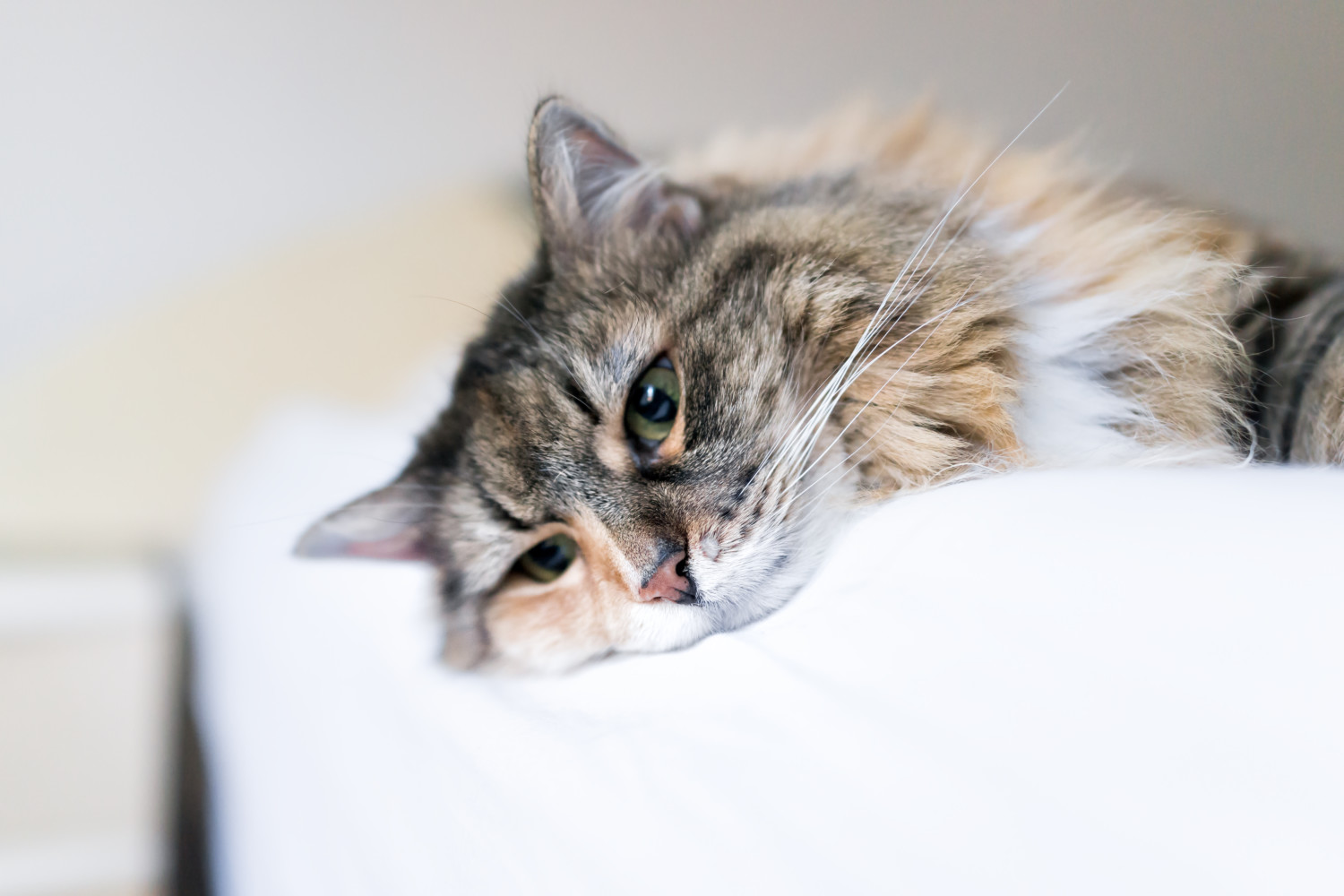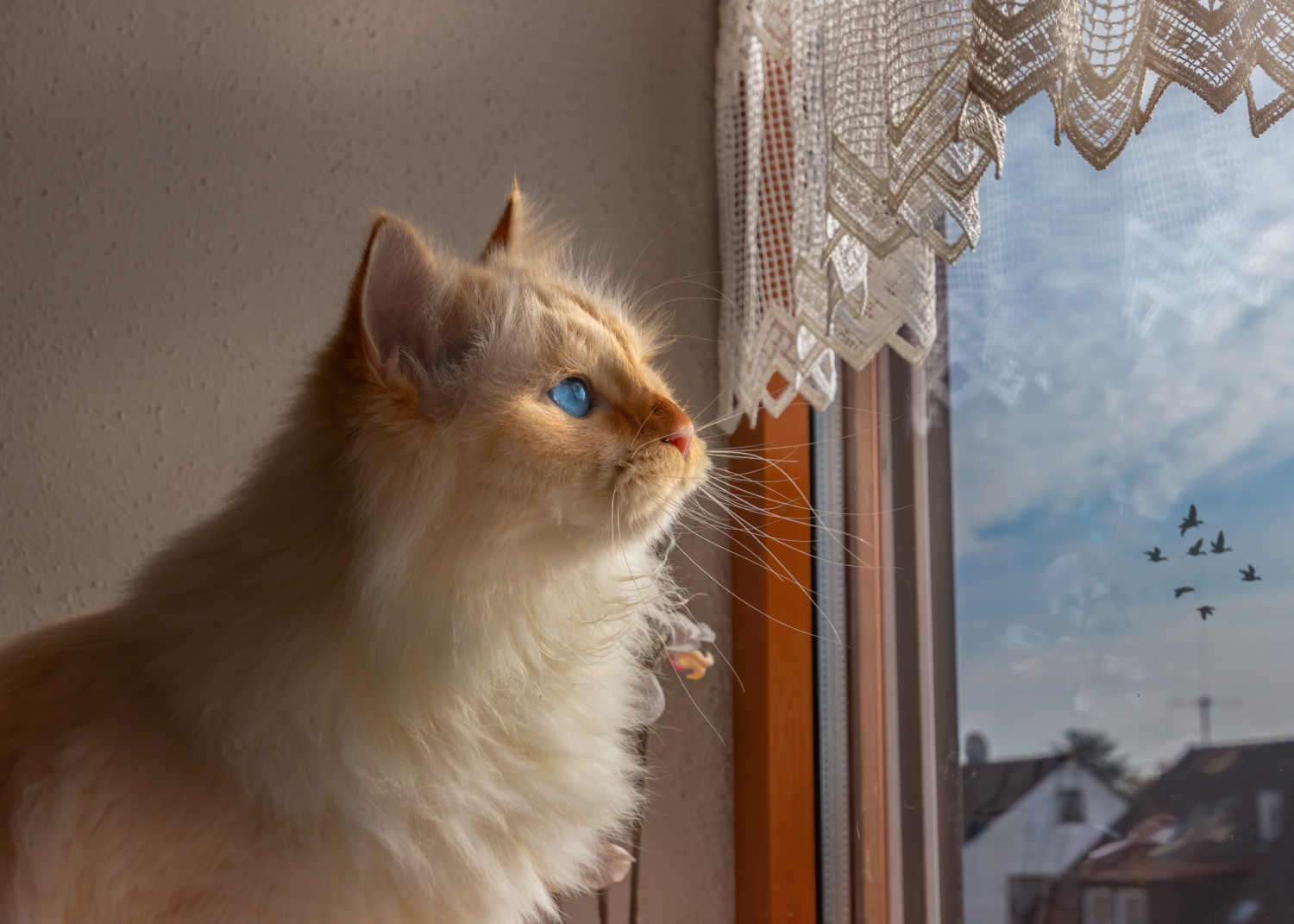When people think of pets being clingy, needy or anxious, dogs might be the first animals that come to mind. However, if you have a cat, separation anxiety can still be an issue. One study showed that more than 13% of cats met at least one of the three criteria used to diagnose cat separation anxiety.
Cats can be very attached to their humans. And with so many people returning to the office after working from home throughout the COVID-19 pandemic, the likelihood of cats experiencing separation anxiety has dramatically increased.
“In really simple terms, separation anxiety is just the fear of being left alone and the unknown that follows,” veterinarian Dr. Nellie Goetz told the Humane Society of the United States. “Animals live in the here and now … so when you leave, as far as they know, you could be gone forever.”
If your cat shows signs of this disorder, it can be concerning and even costly if it results in destructive behavior. Fortunately, you can help your feline friend feel calmer, safer and happier. Learn about why cat separation anxiety occurs, how to spot it and what to do for your kitty if they feel anxious when you’re away.

Cat Separation Anxiety Symptoms
Much like dogs and even children, being away from someone who’s important to them can negatively affect a cat.
“Separation anxiety is a stress response in an animal observed when they are separated from a person or other animal that they are strongly bonded to,” Dr. Erin Katribe, medical director of Best Friends Animal Society, told Mashable.
Several signs could show your cat is experiencing anxiety when you leave the house. These are some of the most common symptoms:
- Your cat is more vocal than usual as you leave or when you are gone. This can include meowing, chirping or yowling.
- They may miss the litter box or relieve themselves on your clothing, bedding or furniture.
- You find scratches on doors and window frames or damaged window treatments.
- Your cat vomits food or hairballs without apparent cause, but only when you aren’t home.
- They might stop eating when you’re away.
- Cats sometimes show obsessive behaviors, such as overgrooming.
- An otherwise well-behaved cat may suddenly become destructive when alone.
- If someone else tries to touch them, the cat becomes aggressive.

If your cat doesn’t exhibit any of these behaviors under ordinary circumstances, such as when you go to work, but does when you are gone for more than a day or two, it could still point to separation anxiety.
“Cats demonstrate separation anxiety primarily when their owners are away for a few days, not during the typical workday,” Dr. Loukia Agapis, the director of the Shelter Medicine Program at the University of Illinois College of Veterinary Medicine, shared in a report. “During extended absences, cats may benefit from a professional pet sitter stopping by twice daily for play sessions or even for overnight stays.”
Of course, some of these symptoms could indicate a medical concern. Therefore, checking with your veterinarian to ensure your cat is healthy when new behaviors are present is always wise.
Common Causes Of Cat Separation Anxiety
Because every cat is unique, there is no simple answer to the question of what causes separation anxiety. However, several experiences, characteristics and external factors could make a cat more susceptible. For instance, one study showed that separation anxiety was more commonly reported in senior female cats than in males.
Other typical causes of cat separation anxiety include:
- Being an indoor-only cat, especially one that lives with only one adult human
- Being the only pet in the household
- Being orphaned as a kitten, weaned too early or bottle-raised
- Experiencing a sudden change in routine or surroundings
- Boredom or lack of stimulation
- Lack of socialization

Ways To Alleviate Cat Separation Anxiety
Talk to your vet first if you think your cat is experiencing separation anxiety.
“Whenever your cat has a sudden change in behavior, especially if nothing has changed recently in the home, you should start with having your veterinarian examine your cat to rule out illness as the underlying cause,” veterinarian Dr. Sarah Nold told Trupanion. “Separation anxiety is used to describe various problems that occur when your cat is left alone. Separation anxiety is less common in cats than dogs, likely because cats are innately solitary.”
If your cat is healthy but likely has separation anxiety, your vet may recommend medication to help. You can also try several things to help your cat feel more comfortable when you are away.
Try leaving your cat for short periods and rewarding positive behavior with treats or playtime. Then, gradually increase the time you are gone to help them adjust.
Come and go without making a big deal about it, and try to curb your own anxiety about leaving your cat alone.
“If you’re really worried about your cat being anxious that you’re gone, they’re going to sense that,” Janelle Metiva, certified dog trainer and dog behavior specialist for Best Friends Animal Society, told “Today.” “So you want to kind of fake that everything is fine and don’t make a big dramatic deal about leaving the house.”

Hide toys and treats around the house for your cat to find. Incorporate other distractions and forms of entertainment into your home, such as a perch where your cat can look out a window, a cat tree or a comfy bed. Turn on the TV and play videos of birds and squirrels, or stream some relaxing music.
When you are home, provide lots of love, attention and fun, but also reward independent behavior. Your cat can learn that as much as they love time with you, being on their own can be pretty enjoyable, too.
This story originally appeared on Simplemost. Checkout Simplemost for additional stories.


